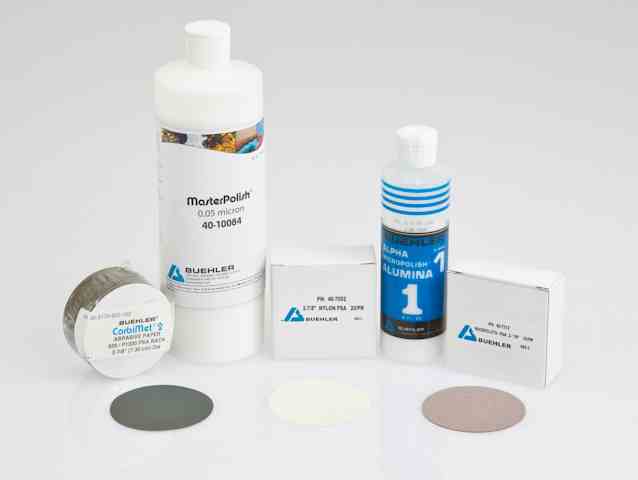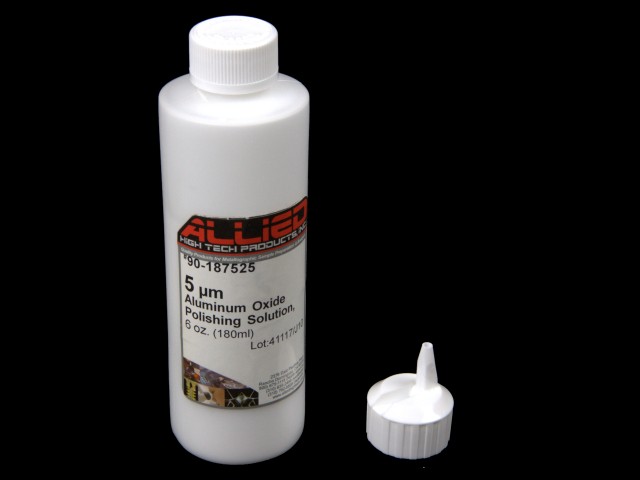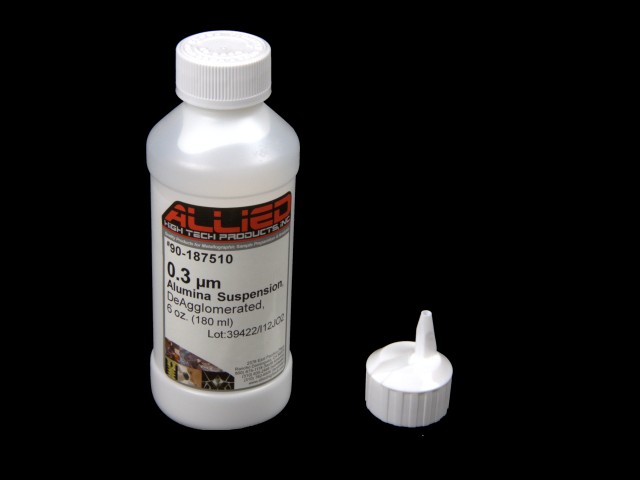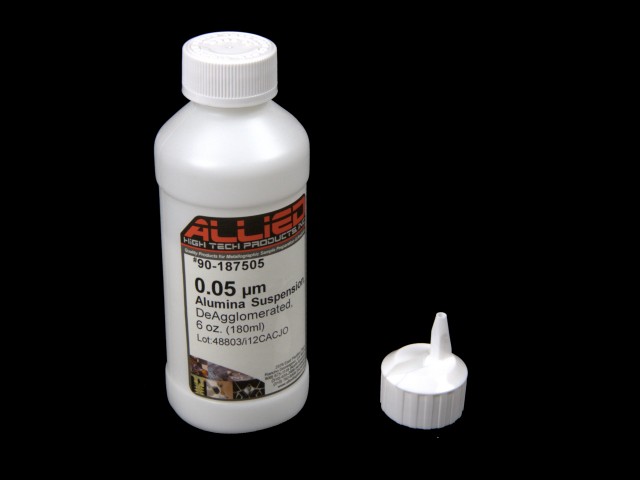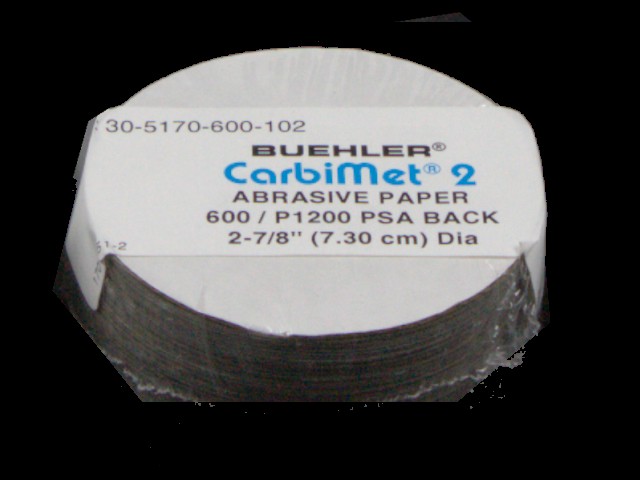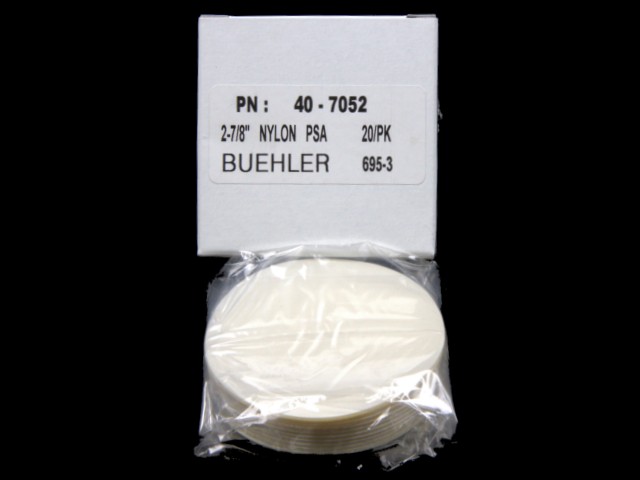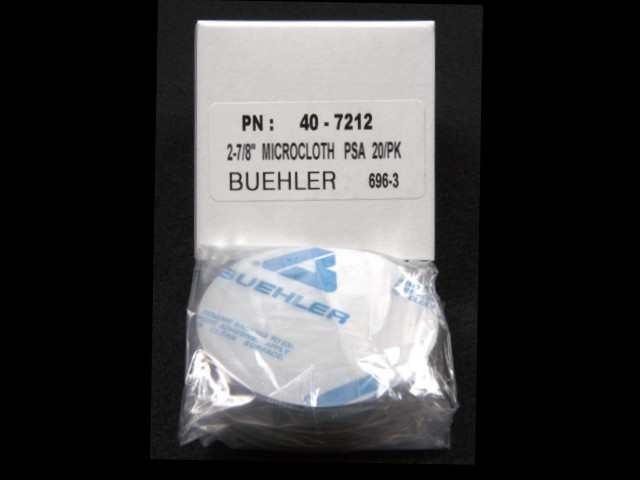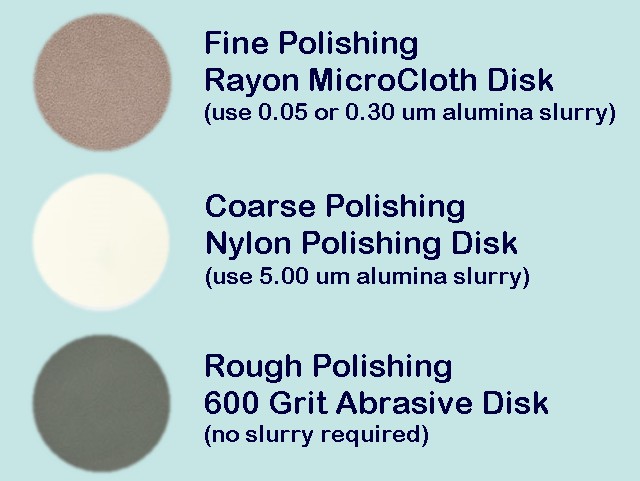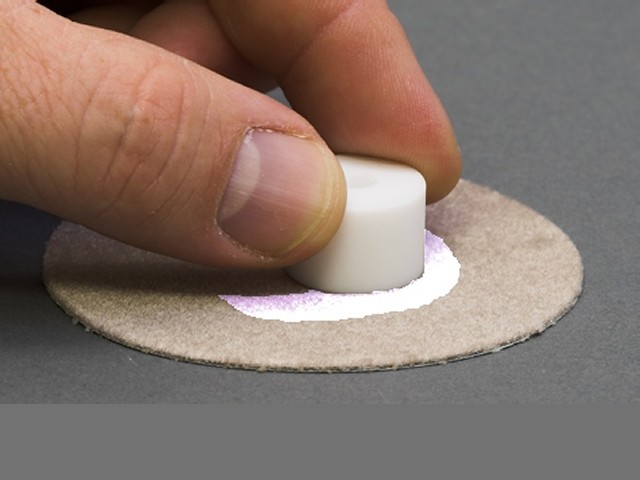Routine, daily polishing of a precision electrode surface is normally accomplished using a slurry of sub-micron alumina particles. The slurry is deposited on a special microcloth and then the electrode is pressed into the slurry and carefully polished against the alumina particles.
At the end of a series of tests, the surface of an electrode should normally be polished using an ultrafine slurry of 0.05 µm alumina particles. This slurry is usually sufficient for preparing the electrode surface for the next set of tests.
In the event that a slightly more aggressive resurfacing is required (i.e., if a thin film has fouled the electrode surface), then a fine slurry of 0.3 µm alumina particles can be used first to remove the film. Then, after the film is removed, the surface can be polished with the ultrafine 0.05 µm alumina slurry.
A far less frequent "coarse polishing" of the electrode surface involves larger alumina particles (5 µm) and should only be performed if the electrode has a noticeable scratch or has been fouled with a thick layer of unwanted material.
Pine Research offers a 5 µm alumina slurry that is normally used in conjunction with a hard nylon polishing cloth.

